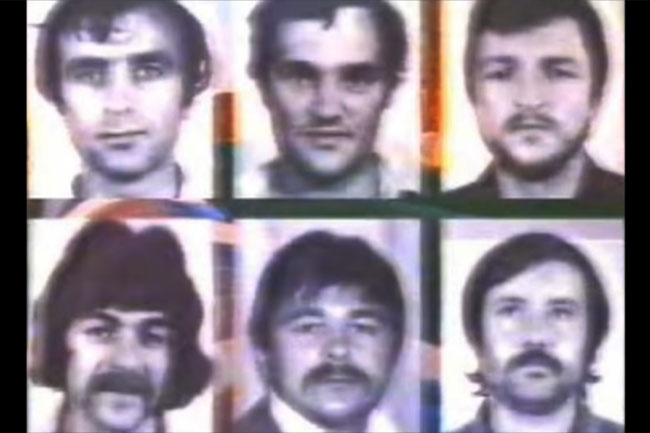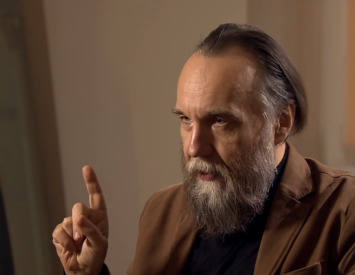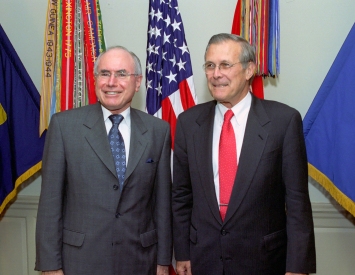Walkley-award winning journalist Hamish McDonald speaks to Branko Miletic about the state of journalism, his career and geopolitics in the Asia-Pacific.
BORN IN MELBOURNE in 1948 to parents he describes as being of Scottish stock, Walkley-award winning journalist Hamish McDonald survived a rugby-mad Presbyterian private boys school and eventually got addicted to newspapers and magazines while studying government and political science at Sydney University.
One of his early tutors, Peter King, said one of his essays on Vietnam read like a magazine piece. So he applied for a cadetship at the Sydney Morning Herald (SMH) and by delivering a sample of his writing overnight, got one, which was followed by a long apprenticeship, covering local courts, sports, immersion in trades hall and politics.
Branko Miletic for Independent Australia: "What type of reporting do you prefer: news or features and what is it that you find most appealing?"
Hamish McDonald: "Entering and coming to understand other cultures. After six years with the SMH, I sold our VW and collected accrued holiday pay and went to Jakarta as a freelancer in 1975 with my first wife and our first child, who was then two."
He continued:
It was tough going, as Indonesia was in an oil boom. Accommodation was expensive and only 12,000 phone lines for the whole city. We lived in a kampung for the first couple of years, then Fairfax gave us a reasonable package. The stories were amazing – the Timor invasion, the collapse of the state oil company, Suharto clamping down. I was very green, but managed to stay alive.
IA: "Your interest in Indonesia also goes back decades — why is this country so important to Australia, in your opinion?"
HM: It’s simply because it’s so big, heading toward 300 million people and straddling our routes into South East Asia, where it sets the pace for regional organisations.
The fear of a military threat has mostly gone, but there are others rising, like the intensifying orthodoxy of its Islamic faith and spread of jihadist groups. We need to understand and try to influence things to the extent we can.
As Ross Garnaut often says, as long as we have friendly relations with Indonesia, we are secure.
IA: "In 2005 you won a Walkley Award for your article: "What's Wrong With Falun Gong", about the brutal suppression of the Falun Gong religious movement in China. Are there parallels with how the Chinese leadership reacted to the Falun Gong and the Coronavirus outbreak in terms of mishandling and over-reacting?"
HM: Falun Gong blindsided the Chinese Communist Party’s leadership. One morning the Politburo woke up to find thousands of practitioners doing spiritual exercises in the streets outside the leadership compound in Beijing. It must have recalled the millenarian movements that swept China in the 19th century and shook imperial rule, inviting foreign intervention.
The response was concerted and brutal brainwashing, very much like the overkill in Xinjiang now with the mass brainwashing of the Uighurs. The coronavirus is a physical illness, not a perceived mental one, but it also challenges Beijing’s assertion of total control. As with Falun Gong, it took the leadership by surprise because the warning signs were suppressed.
IA: "Last year you published Reasonable Doubt, a book about the now-infamous Croatian Six court case. What prompted you to diverge from your almost exclusive Asian focus and what did the research teach you about both the Australian justice system?"
HM: I came upon this case by accident, through a side reference during the Balibo inquest in 2007. The more I looked the more intrigued I became. It took me into areas that were new to me: the police culture of the 1970s, the legal system and Balkan diaspora politics.
Chris Masters at Four Corners had exposed some of the machinations behind the case in 1991 and the later Wood Royal Commission into the NSW Police Service revealed the extent of police corruption. I had an unsuccessful go while still at the SMH to get the convictions reviewed.
But after I took redundancy, I was freed up to travel to the former Yugoslavia, search archives there, get a more considered historical perspective and then go for specific information in the Australian archives.
IA: "You have now made a couple of trips to the Pacific region, specifically to Papua New Guinea and the Solomon Islands. What is it that fascinates you about this region and what have you seen there that both inspires and frightens you?"
HM: I’d done a couple of long trips through the Melanesian islands during my career and came away with the feeling of a great amount of human talent that was no long being fulfilled by the traditional way of life.
There is still not nearly enough going into education, health and human rights. Most of the region is in the middle of a population explosion meanwhile. We may find ourselves in a Melanesian neighbourhood with a population as big as Australia’s later this Century. It’s in our interests to help these peoples advance, with an emphasis on human development.
IA: "What are your views on the state of journalism and more widely, political discourse in this country and what does it say about how far we've come and where we are going as a nation?"
HM: I worry that the commercial pressures on media are reducing the ambitions, making us look for the more ephemeral changes and personalities.
A few established outlets have the scope for original investigation of the world – the Financial Times, the New Yorker, for example. Meanwhile, the terrorism scares have enabled the cops and spooks expand their powers to track down sources.
Politicians like Scott Morrison flaunt any obligation to be straight with the public. There is a meanness creeping into the Australian soul. The Australian character always had a tinge of boastfulness and bastardry, compared to the Canadians and New Zealanders.
Now it’s worse. We think we are God’s gift. We condone Manus Island and Nauru. We deport New Zealand citizens, mostly Maori, who have spent their whole lives here and won’t rescue Australian kids in the Syrian refugee camps.
Branko Miletic is a journalist, editor, historian and author who has written extensively on the wars in the Balkans and post-Yugoslavia politics for the past 20 years. You can follow Branko on Twitter @journovox9.
 This work is licensed under a Creative Commons Attribution-NonCommercial-NoDerivs 3.0 Australia License
This work is licensed under a Creative Commons Attribution-NonCommercial-NoDerivs 3.0 Australia License
Support independent journalism Subscribe to IA.












